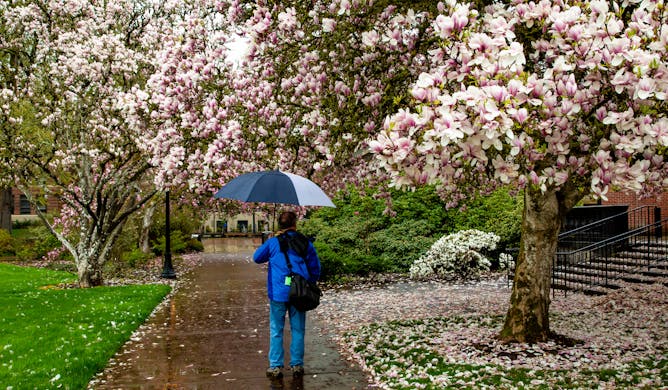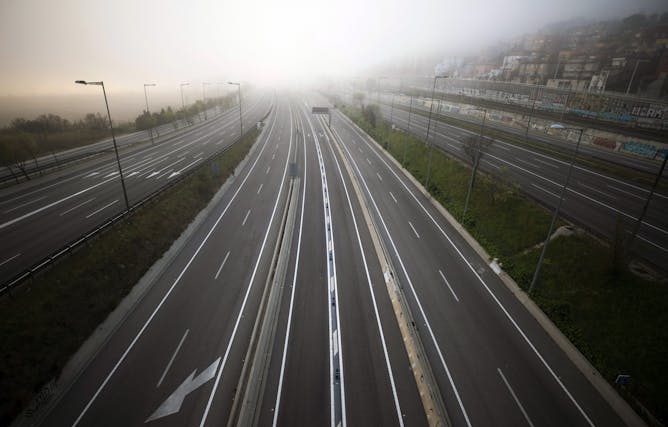|
|
|
|
The future of universities came into focus this week as news about Laurentian University layoffs put a chill over many people beyond the northern Ontario campus community.
Many are concerned about the increased challenges universities are facing during COVID-19. Far beyond the ivory tower, and across the country, much is at stake in how university leaders navigate both long-standing and unforeseen pressures. Questions linger about the purpose of universities, who benefits and the kind of society Canada aspires to be.
Today in The Conversation Canada, Loren Falkenberg and M. Elizabeth Cannon of the University of Calgary note that "public universities, in developed countries, can no longer depend on government funding, and must restructure to reduce costs and increase revenue" through philanthropy and commercialization.
They draw on insight from their book, Strategic University Management: Future Proofing Your Institution, to discuss how university leaders can plan for the future while “mitigating the impact of unforeseen events.”
Also today:
Regards,
|
Susannah Schmidt
Education + Arts Editor
|

|
|

The probability of successfully planning for the future dramatically increases when university leaders appropriately engage faculty and staff to strategize.
(Shutterstock)
Loren Falkenberg, University of Calgary; M. Elizabeth Cannon, University of Calgary
Strategic planning experts say public universities in developed countries can no longer depend on government funding, and must restructure to reduce costs and increase revenue or face failure.
|

Part of Gros Morne National Park in western Newfoundland is seen in June 2017. Tourism is critically important for many areas of rural Canada.
THE CANADIAN PRESS/Colin Perkel
Sarah-Patricia Breen, University of Saskatchewan
Misconceptions of rural realities can have serious implications. Better use of data can help avoid this and lead to policies that will help rural communities recover in the post-pandemic.
|

Reduced traffic during lockdowns led to decreases in air pollution in many major cities in Europe.
(AP Photo/Emilio Morenatti)
Frederik Noack, University of British Columbia; Dominic Rohner, Université de Lausanne; Raahil Madhok, University of British Columbia
While most areas experienced a reduction in air pollution in response to lockdown measures, other areas saw only small improvements or even an air quality deterioration.
|

As we head into spring and summer, the most popular seasons for home improvement, it’s important for couples to set ground rules before breaking ground.
(Shutterstock)
Emily Waugh, University of Toronto
An architect and a therapist share tips for improving your home without sacrificing your relationship.
|
La Conversation Canada
|

La chancelière allemande Angela Merkel lors d'une conférence de presse, le 30 mars 2021, à Berlin. Elle est l'une des rares leaders à avoir présenter ses excuses dans la gestion de la pandémie de Covid-19.
AP Photo/Markus Schreiber, pool)
Denis Monneuse, Université du Québec à Montréal (UQAM)
La majorité des leaders ne s’excusent pas pour leurs erreurs, même flagrantes. Pourtant, des excuses sincères et spontanées sont bénéfiques.
|

La façon dont nous réagissons à cette pandémie est très variable et dépend surtout des multiples facettes de notre personnalité et de nos traits de caractère.
Shutterstock
Lis Ku, De Montfort University
Intuitivement, on peut penser que les introvertis s’en sortent mieux que les extravertis pendant les périodes d’isolement. Or cette affirmation n’est pas soutenue par des preuves scientifiques.
|
COVID-19
|
-
Erin Hannah, Western University; James Scott, King's College London; Silke Trommer, University of Manchester; Sophie Harman, Queen Mary University of London
The fight for vaccine equity needs to stop looking to multilateral institutions for permission and instead focus on the policy tools that are already available to states.
|
|
Health
|
-
Alex Ford, University of Portsmouth; Gary Hutchison, Edinburgh Napier University
Our chemical environment appears responsible for an alarming plummet in sperm counts – in humans and in animals.
|
|
Science + Technology
|
-
Archa Fox, University of Western Australia; Damian Purcell, The Peter Doherty Institute for Infection and Immunity
We have two mRNA COVID-19 vaccines so far. But what else can this technology do?
|
|
| |
| |
| |
| |
| |
| |
|
|
|
|
|
|
|